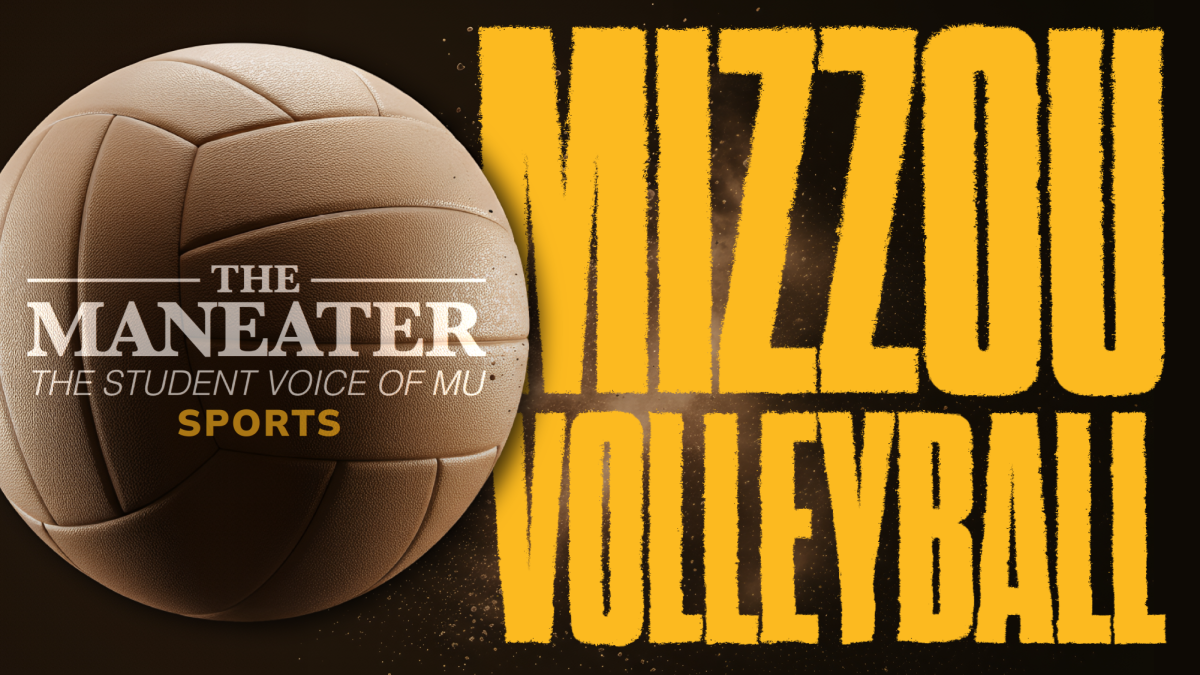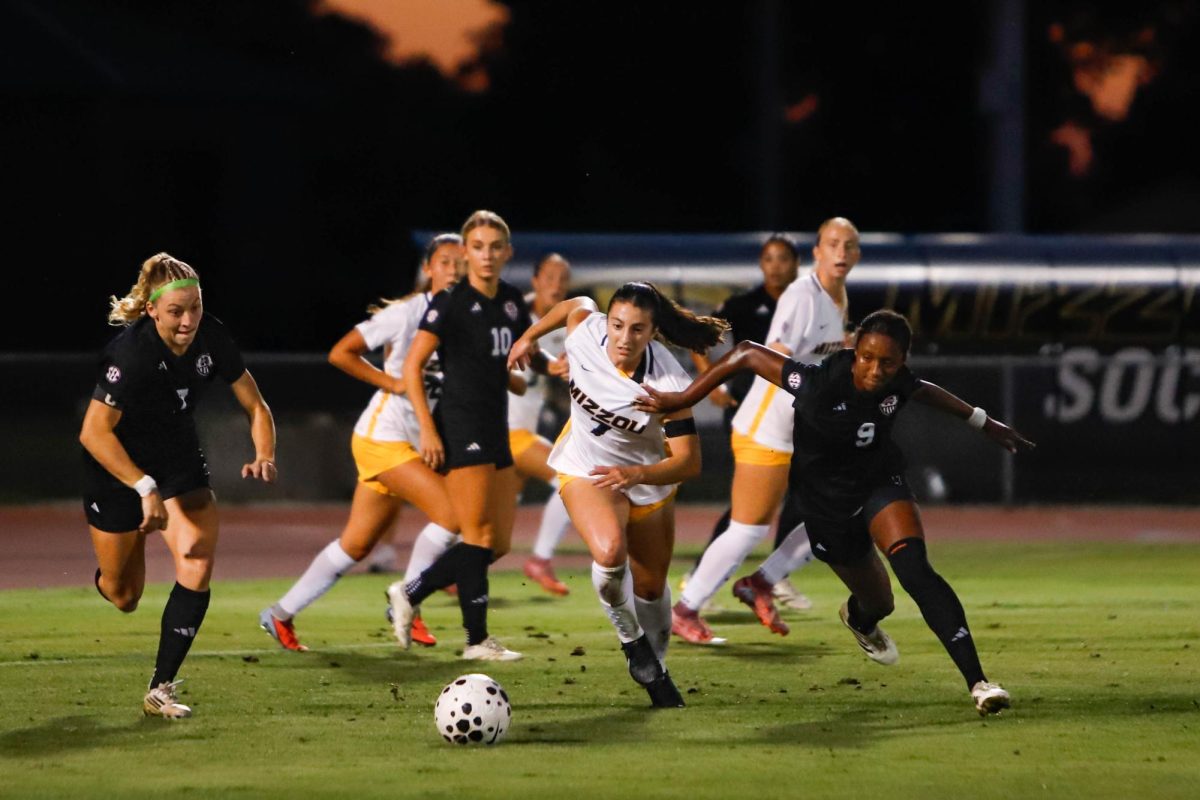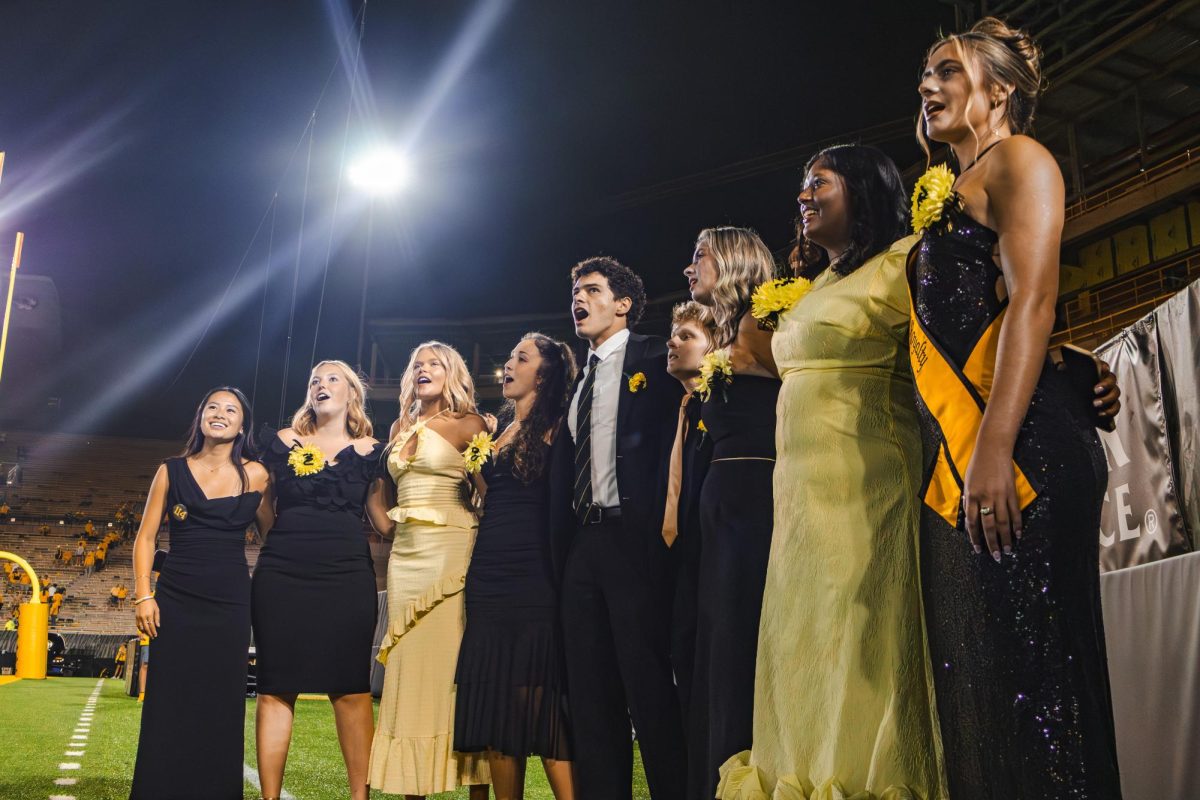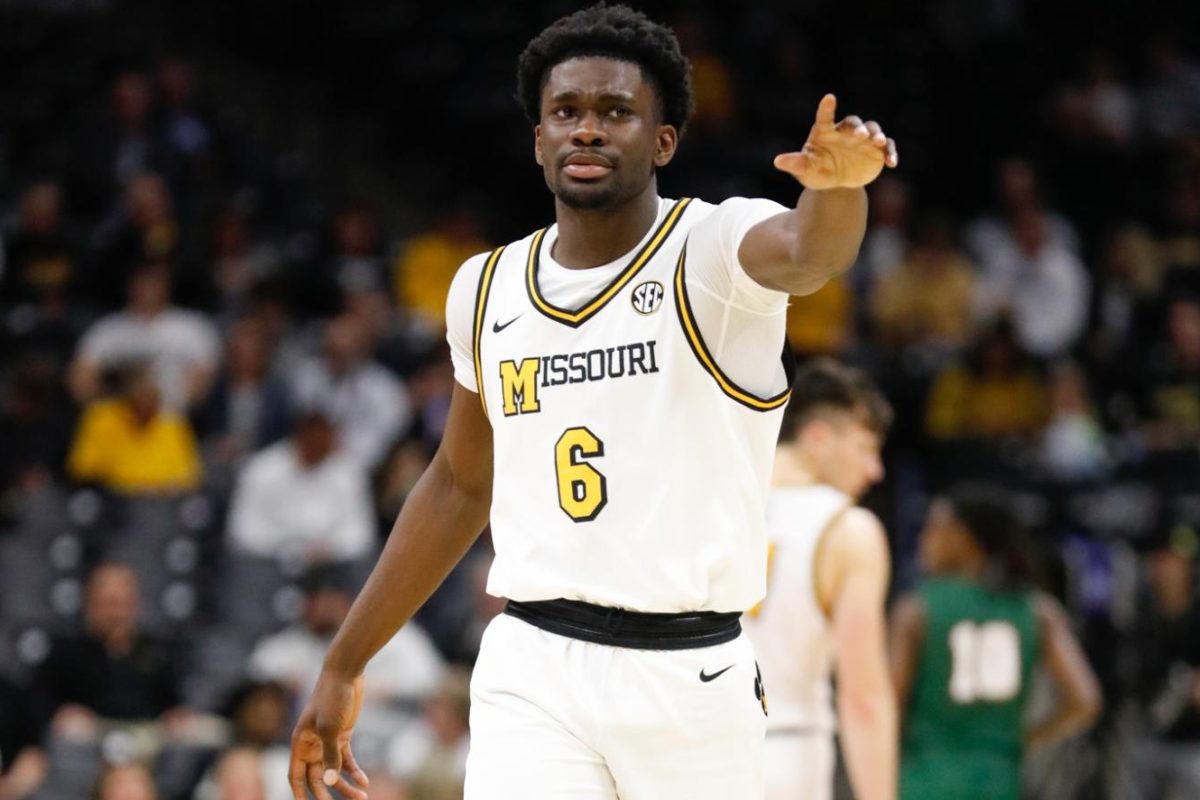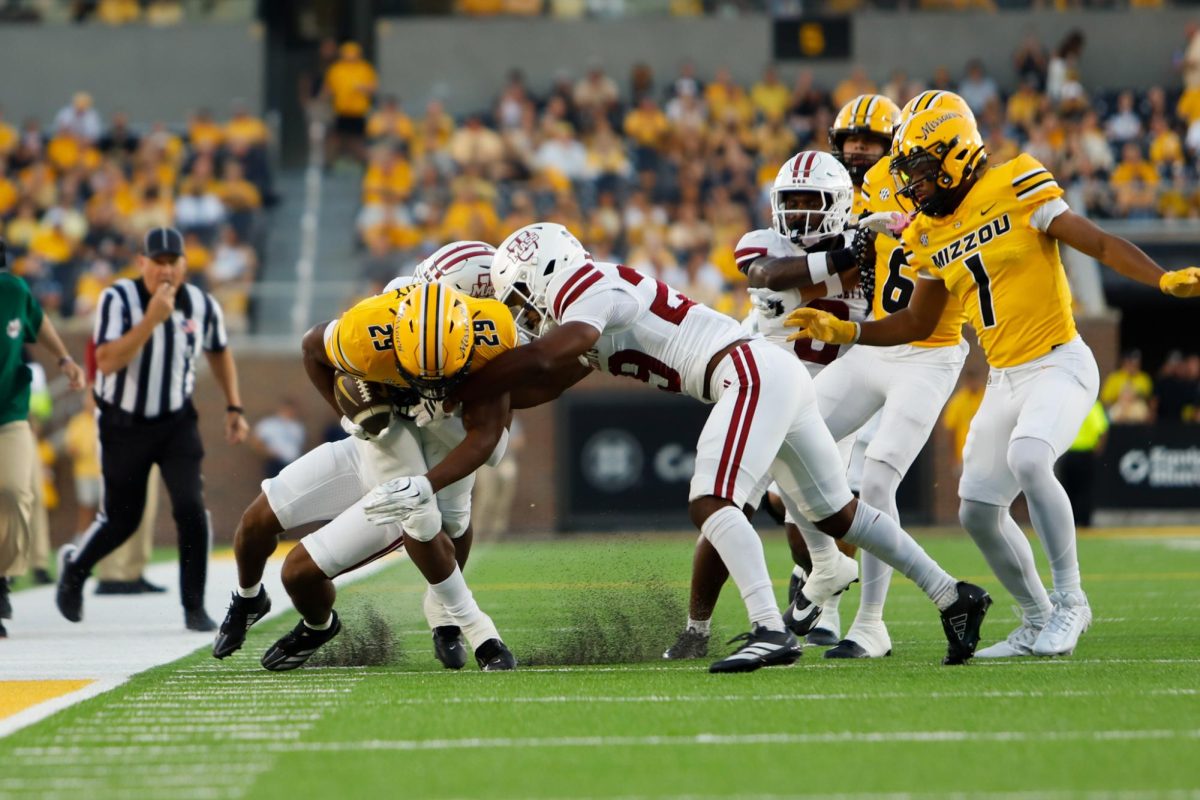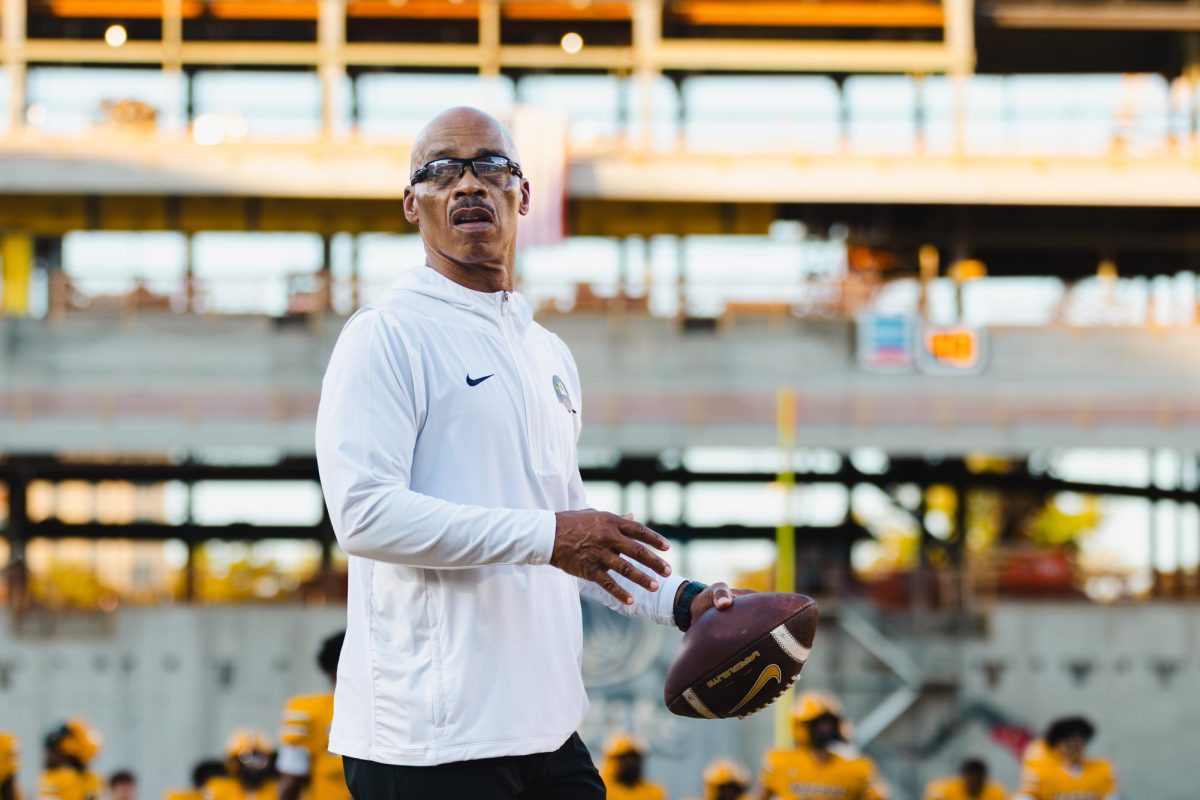Missouri was one of the surprises of the college baseball season. In preseason polls, the Tigers were projected to finish last in the Southeastern Conference. Behind a trio of talented freshmen and a solid 1-2-3 punch in the rotation, Mizzou exceeded expectations this season. However, a collapse down the stretch doomed the Tigers’ postseason hopes. We revisit the Tigers’ 2015 campaign:
**1. Freshmen step up**
Starting pitcher Tanner Houck, catcher Brett Bond and outfielder Trey Harris were some of the main determinants of success for Mizzou this season. Houck caught the eye of many Major League Baseball scouts with an impressive freshman season in which he went 8-5 with a 3.49 ERA. Houck was used more than any other freshman pitcher in the nation and set himself apart with a dynamic mid-90s fastball and slider with tremendous movement. In addition, Houck fanned a team-high 91 batters and showed excellent command of the strike zone, walking just 12 batters all season. Houck has the potential to be a high first-round draft pick in the coming years.
On the offensive side, Bond and Harris shined for the Tigers. Bond led Mizzou in nearly every offensive statistical category before suffering an injury midway through SEC play. He finished the year second on the team in batting average (.294) and home runs (5) and was steady behind the plate. Bond should continue to develop and will likely become one of the elite catchers in the SEC. Harris, a fan favorite (even at away games), also had a productive freshman season. The Powder Springs, Georgia, native batted .263 and started in 52 of the 53 games he played in. Harris smacked four home runs and drove in 22 runs and did not commit an error all season. After spending much of his high school career at third base, Harris made the transition to the outfield this season but also saw time as the team’s designated hitter. Reliever Lake Dabney (23.0 IP, 1.17 ERA) and infielder Shane Benes (.225 AVG, 2 HR, 8 RBI) also saw significant playing time as freshmen.
**2. Front of rotation excels**
Throughout the entire season, the strength of this Mizzou team was the pitching rotation, specifically the big three of Reggie McClain, Houck and Peter Fairbanks. McClain, a junior college transfer from Manatee Community College, separated himself at the beginning of the season with a string of impressive performances in non-conference play. In the season opener against Iona, McClain tossed eight innings of three-hit baseball, fanning 10 batters in a 1-0 Tigers victory. In his first six outings, McClain recorded five quality starts and surrendered just 10 runs total. The right-hander was also Mizzou’s starting pitcher in a 5-1 victory over South Carolina in the SEC Tournament. Houck enjoyed a tremendous freshman season (see above paragraph for more details) and will be a force at the top of the Tigers’ rotation for the next couple years. Fairbanks, a tall right-hander from St. Louis, increased his velocity this season and was a crucial part of the Tigers’ success in conference play. Among starting pitchers for Mizzou, Fairbanks held the lowest ERA (3.40).
**3. Mid-week struggles**
Unfortunately for the Tigers, mid-week games were a major issue, and their 2-7 mark in those games (once conference play began) was likely one of the reasons Mizzou was left out of the NCAA Tournament. In fairness, an arm injury to fourth starter Alec Rash, was part of the reason for the mid-week struggles. Rash was 3-0 with a 3.21 ERA before being shut down for the season. John Miles entered the fourth spot in the rotation but struggled at times, finishing 1-2 with a 4.71 ERA. The Tigers dropped mid-week games to Air Force, Arkansas-Pine Bluff, Arkansas-Little Rock and Southeast Missouri State, none of which were tournament teams, and also lost all three games against rivals Missouri State and Illinois.
**4. Gaining national respect**
Despite a collapse down the stretch (Mizzou lost 12 of its final 15 regular season games), it was a monumental season for the Tigers, who nearly reached their first NCAA Tournament since 2012. In its first two years in the SEC, Mizzou won just 16 conference games combined. This past season, the Tigers won 15 SEC games, including six series. Mizzou also won its first-ever SEC Tournament game since making transition from the Big 12 Conference and was one out away from eliminating top-tier team Vanderbilt. If the Tigers had been able to close it out against the Commodores, an NCAA Tournament bid likely would have been secured (Mizzou was the second team out of the tournament), but regardless, Mizzou’s success in conference play helped garner national respect. Mizzou has a lot to look forward to next season and should compete to be a regional host in the NCAA Tournament.
**5. Going forward: Tim Jamieson’s future**
Despite the team’s success this season, head coach Tim Jamieson’s future at Mizzou is in question. Jamieson is the longest-tenured coach at Mizzou and is the second-winningest coach in Mizzou history, but with newly hired Athletic Director Mack Rhoades set to take over, changes could be in place after the Tigers missed out on the NCAA Tournament for the third consecutive season. While at the University of Houston, Rhoades was instrumental in building a national baseball powerhouse. The Cougars had three 30-win seasons with Rhoades as athletic director and have made the NCAA Tournament each of the past two seasons. Last year, Houston advanced to super regionals and the Cougars were a regional host this season. With Jamieson’s contract expired, Rhoades could decide to move in a new direction.






